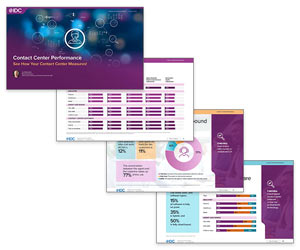Performance management is an ongoing challenge, but there are a lot of positive changes every manager can make to help keep the dial moving in the right direction.
Here our readers share their best tips on getting it right – on everything from driving a culture of continuous improvement, running good review meetings, and addressing wider issues of well-being too.
Top Tips for Driving a Culture of Continuous Improvement
1. Focus on Inspiring Your Team – Instead of Controlling Them
Engaging, inspiring and leading should be your main goals when trying to drive good performance – instead of being transactional, reactive and controlling of your team.
Figures are great for keeping track of development, but personal feedback for your team is much more valuable.
Thanks to Hollie
2. Introduce Gamification for a Bit of Healthy Competition
Have you tried integrating performance management with gamification?
This can quickly and easily encourage healthy competition between agents and drive up standards.
Thanks to Steve
3. Avoid Relying on a Single Motivation Strategy
When thinking of how to motivate agents to perform well, look at the bigger picture and remember that motivators are different for different people.
Where higher salary and promotion might be needed to inspire some of your team, for others it could be more about some kudos and Friday donuts. Tune into what your team needs and what makes them tick to get the best out of them.
Thanks to Gemma
For some great ideas on how to motivate your team, read our article: 16 New-Age Ideas for Inspiring a Young Workforce of Super-Agents
4. Managing Performance Is About More Than Just a One-Off Meeting
Stop thinking about performance management as a “tick in the box”.
Consistent performance management is driven by great quality processes:
- Use your QM effectively
- Regularly review forms and questions
- Make sure scoring methods are consistent
Thanks to Steve
5. Look for Trends in What’s Going Well
Don’t just look at week-by-week results.
Find the trends when it comes to productivity and try to apply the same strategy for all the agents to help support an ongoing improvement plan across the contact centre.
Thanks to Georgiana
6. Get to Grips With “Skill vs. Will”
There’s a big difference between having the skills needed to perform and having the will to do well.
Knowing how and when to investigate what’s really happening with an individual when it comes to performance management, and then properly identifying this, will determine how to discuss performance going forward.
Thanks to Justina
Top Tips for Running Positive Review Meetings
7. Ask Your Agents to Tell You Things They Are Proud Of
At the beginning of each 1-2-1, we always ask our agents to name 3 things they have done in the last month which they are proud of.
What I’m proud of:
- Getting the thank you letter from Mrs Jones
- Helping out Mr Davies
- Attending the feedback session
This leads into a nice and positive start to the meeting, and also helps to keep best practice ideas front of mind.
Thanks to Ulrike
8. Don’t Blindside Your Agents With a Performance Review
It’s so important to be consistent when you set a review schedule.
This creates an easier process for the reviewee AND lowers the fear factor too, as knowing it’s happening and when helps agents to see it as a positive part of the monthly routine and not just an attack when they make a mistake.
Thanks to Lindsay
9. Focus on the Conversation – Not the Form
It’s all too easy for managers to focus their energy on the task of completing the performance review form instead of on its purpose.
Remember, the conversation is the most important part of a 1-2-1 and what will really help to get the best out of your agents. The form you complete is just a record of that conversation.
Thanks to Claire
10. Get Prepared Before 1-2-1s to Get the Best out of the Session
Prior to your 1-2-1s, fill out a coaching form with what they have achieved, what’s going well, any challenges and what they want to discuss to make sure you both get the best out of the session.
Thanks to Hollie
11. Don’t Just Tell Agents What They Should Be Doing
I always try to drive the employee to create the actions and outcomes from our performance management. I find this works far better than just telling them what it should be as they engage more in the process.
Thanks to Lindsay
12. Don’t Leave It to the Last Minute
Too many times, I’ve found I’ve gotten to the end of a week and have to try and fit things in that could have been done far better with more forward planning. Plan sessions into your schedule in good time – including sessions for discovery and feedback as well.
Thanks to Carolyn
13. Don’t Get Too Hung up on a Quick Victory
Remember change is a process not just an end goal.
It can be too easy to declare a loss or a victory to soon.
Thanks to Rob
14. Try the Radical Candor Approach
I highly recommend the Radical Candor approach to care personally, while challenging directly; giving guidance and feedback that’s both kind and clear, specific and sincere.
Thanks to Brandon
15. Take a Positive and Adaptable Approach
Always try to take a positive approach to help agents improve.
Nowadays I find we tend to give up instead of changing our techniques. Of course, this only works as long as the employee is willing to get better too.
Thanks to Janice
Read The Best Ways of Providing Corrective and Nurturing Feedback for advice on how to provide effective feedback to your staff.
16. Find Solutions – Not Problems
Too many times feedback sessions are wasted discussing the problem, when identifying and understanding the solution and how best to move forward should be the main focus.
Thanks to Liam
17. Remember You Are Only Looking at the Tip of the Iceberg
If you are assessing a small number of contacts a month, remember that this may be the tip of the iceberg as far as the performance of the agent goes. If you have any concerns you should do more investigating before taking action.
Thanks to Aaron
18. Focus on Behaviours and Root Cause Analysis
Keep feedback focused on behaviours – not numbers!
A proper root cause analysis allows us to the address behaviours that drive change and performance improvement. Also remember feedback sessions are bilateral – not a one-way street.
Thanks to Fernando
19. Dig Deeper to Understand WHY the Issue Is Occurring
Root cause is extremely important, so use questions to understand why the issue is occurring.
Often you’ll find it’s not the individual and it is in fact your tools and processes that are lacking.
Thanks to Lyndsey
20. Adopt a System of “Keep”, “Start”, “Stop”

For us, performance management centres around a “Keep”, “Start”, “Stop” approach on behaviours and performances.
This helps us to have positive conversations with our agents about things they should keep doing, start doing and stop doing to improve their overall performance.
Thanks to Liam
Top Tips for Maintaining Positive Well-Being
21. Introduce Spontaneous “Coffee Catch-Ups”
We take advantage of any quieter spells to help improve agents’ well-being and find that our remote workers enjoy a 10-minute video call “coffee catch-up” with a colleague they haven’t seen for a while.
Thanks to Liam
22. Give Your Agents Breathing Space
If your business allows, give your staff ‘power hours’ when they can come off the phone and get their head down in admin and back-office tasks without any distractions.
It works far better than dipping in and out, and saves the stress of feeling overwhelmed by tasks they only get chance to do in between calls. It also allows them to take more responsibility of their own workload and get better job satisfaction, which contributes to overall well-being and performance.
Thanks to Katie
23. Make Sure You Praise and Coach Simultaneously
When evaluating calls, I believe it’s so important to praise the agent, as well as take advantage of any coaching opportunities.
Thanks to Denise
Our article 7 Drivers of Employee Engagement contains practical steps on how your organization can drive employee engagement.
24. End ALL Conversations About Performance on a Positive Note
When wrapping up a performance review, I always like to end the chat with a positive of some kind.
This helps to keep agents focused on how they can improve – not just worrying about what the next meeting might bring.
Thanks to Lindsay
25. Teams Chats Can Be Just as Effective as Face-to-Face Huddles
Did you ever think that daily team huddles could be held in chat rooms?
In busy contact centres, we find that using Teams Chats can be a suitable replacement for huddles for boosting morale and helping to maintain a strong sense of camaraderie.
Thanks to Steve
26. Focus on Agents’ Mental Health
In hybrid scheduling there seems to be a need for more meetings to support mental health and replace the in-person connection that the teams are missing when working from home.
Invest time in how you are going to support agents’ well-being – not just pay lip service to it.
Thanks to Aaron
27. Schedule Team Huddles to Suit Your Team’s Needs – Not Just for the Sake of It
Know what works best for your team to help keep morale high.
No one wants to sit on a huddle with no one interacting. It doesn’t need to be every day for all teams. Experiment if you need to.
Thanks to Lindsay
28. Create a Group Chat to Keep in Touch Throughout the Day
Our management team have two huddles a day, but with the agents we now have a group chat created for the day, so we can scrap the idea of a ‘huddle’ for these purposes and instead have it as a continuous conversation.
Also, if we see a dip in call volumes, we can throw in a quick game or something fun, which works well!
Thanks to Jake
Read The Best Motivational Games for Employees and Remote Workers for suggestions on fun games to play with your employees.
29. Don’t Expect Changes Every Week!
When trying to make positive changes to improve performance, frequent reviews are important – but be careful to make sure you don’t expect changes every week.
Many improvements can take time, so be realistic and adapt your approach when necessary.
Being too results-focused can have the opposite effect to what you are trying to achieve.
Thanks to Alex
For more great ideas on how to develop your staff and provide great customer service, read our articles:
- 50 Call Centre Training Tips
- Top Tips to Improve Listening Skills on the Telephone
- 21 Quick Wins for Dealing With Chat and Email
Author: Robyn Coppell
Published On: 1st Dec 2021
Read more about - Hints and Tips, Agent Performance, Employee Engagement, Performance Management, Team Management






































